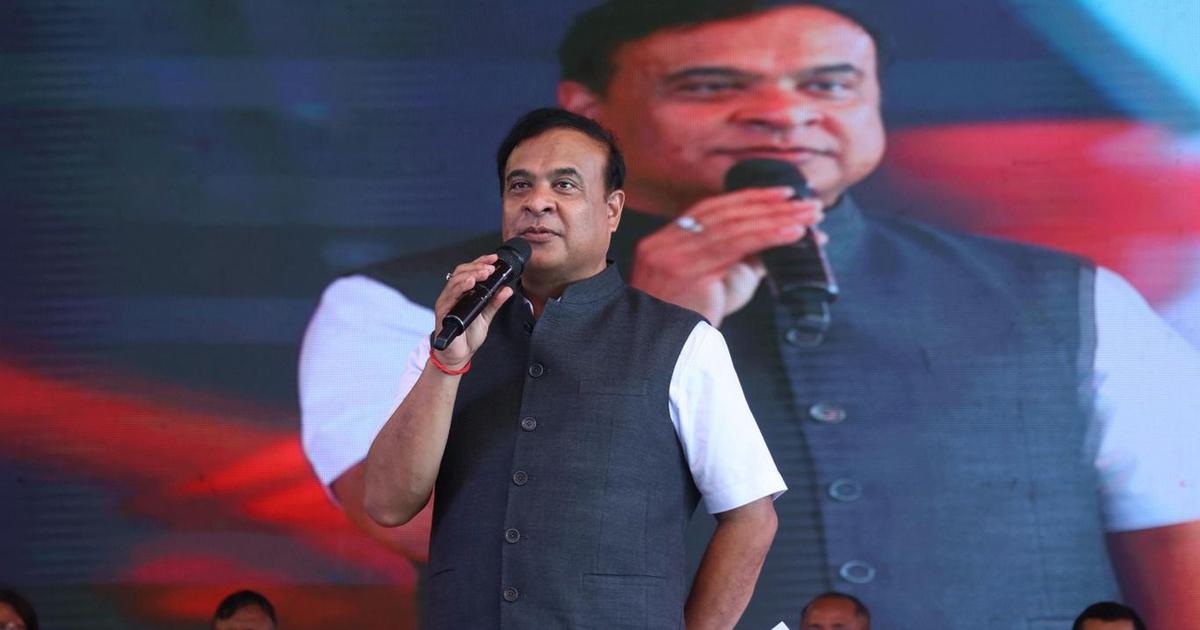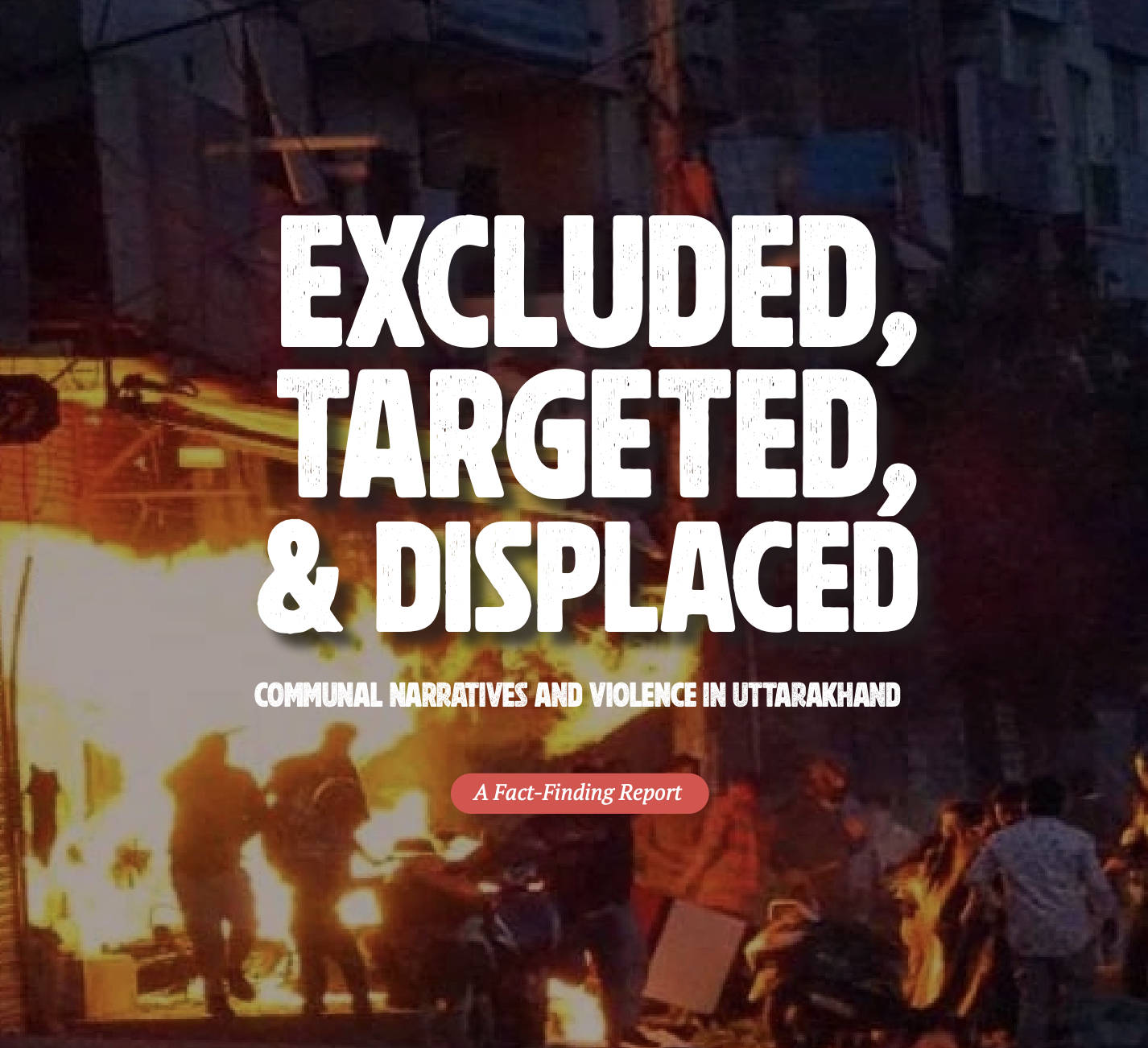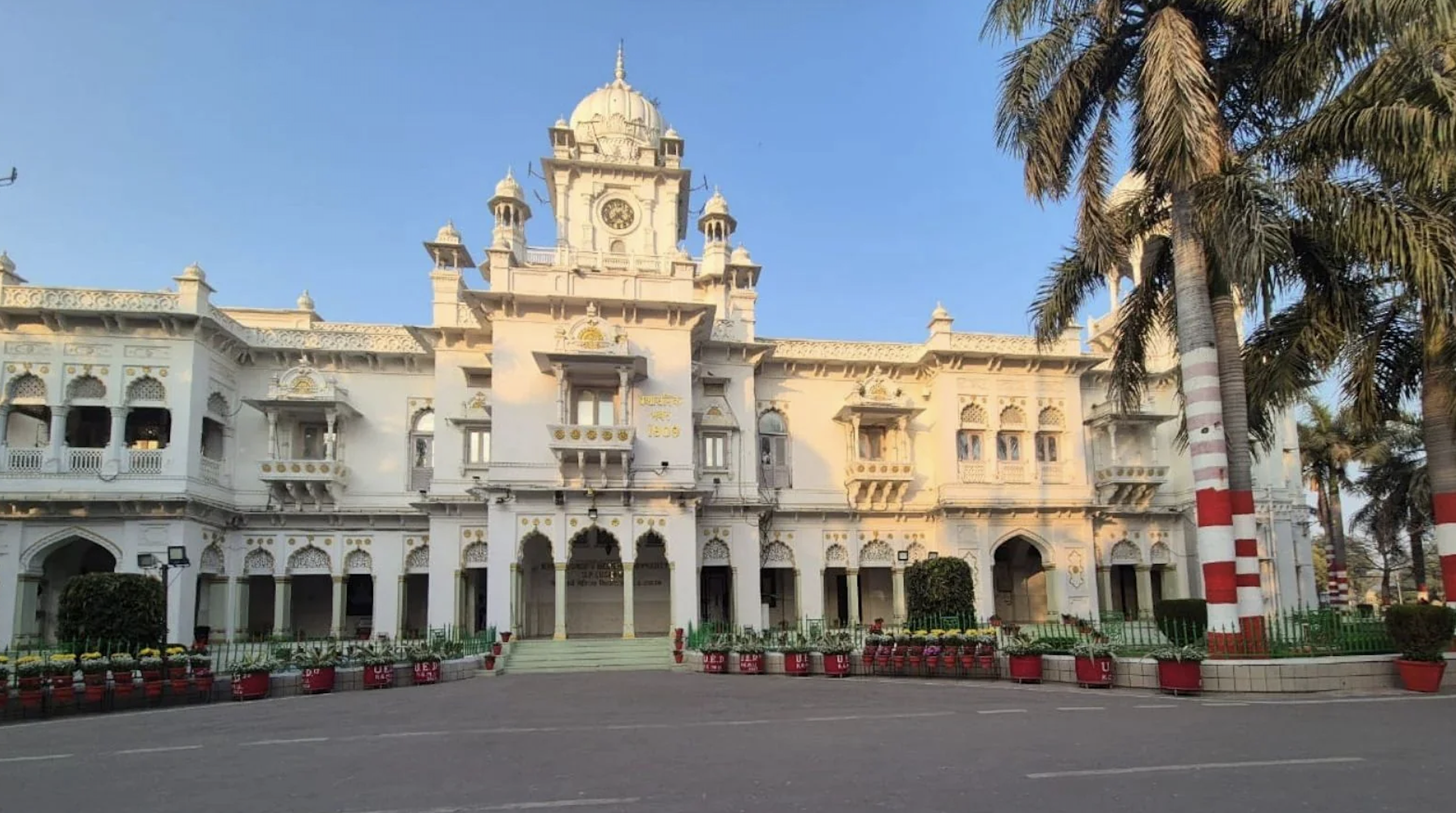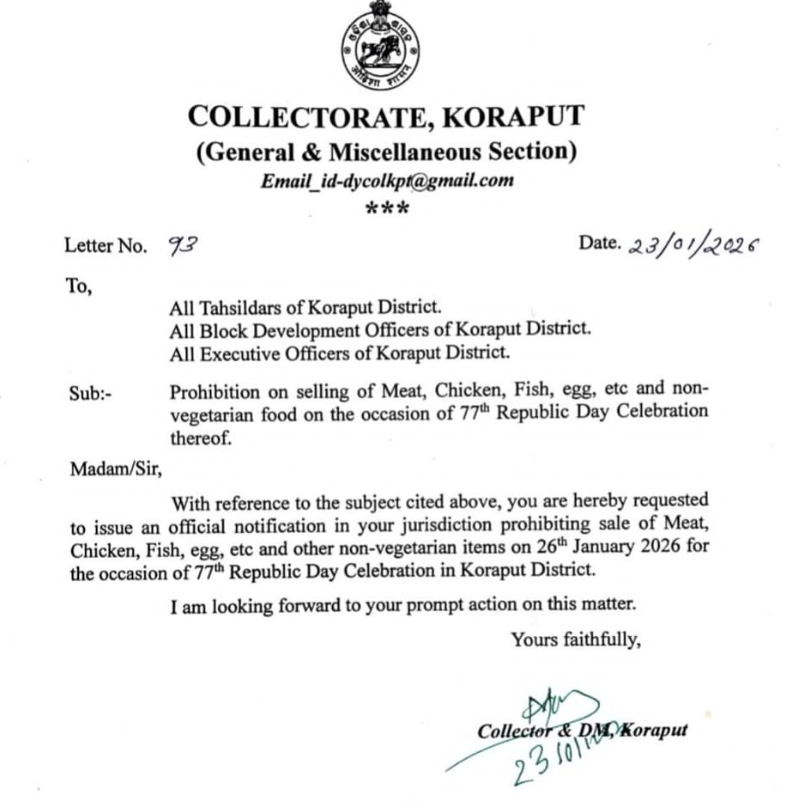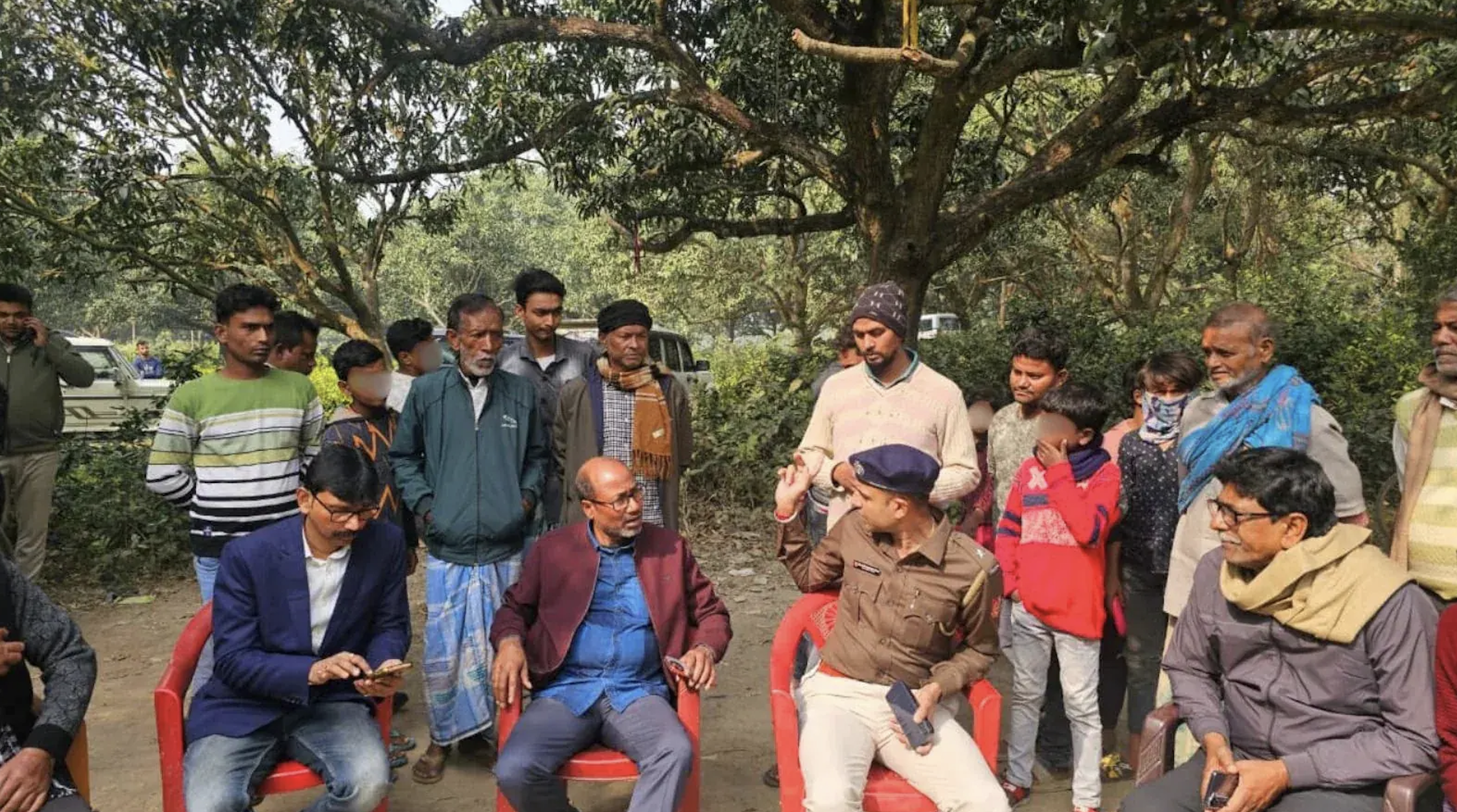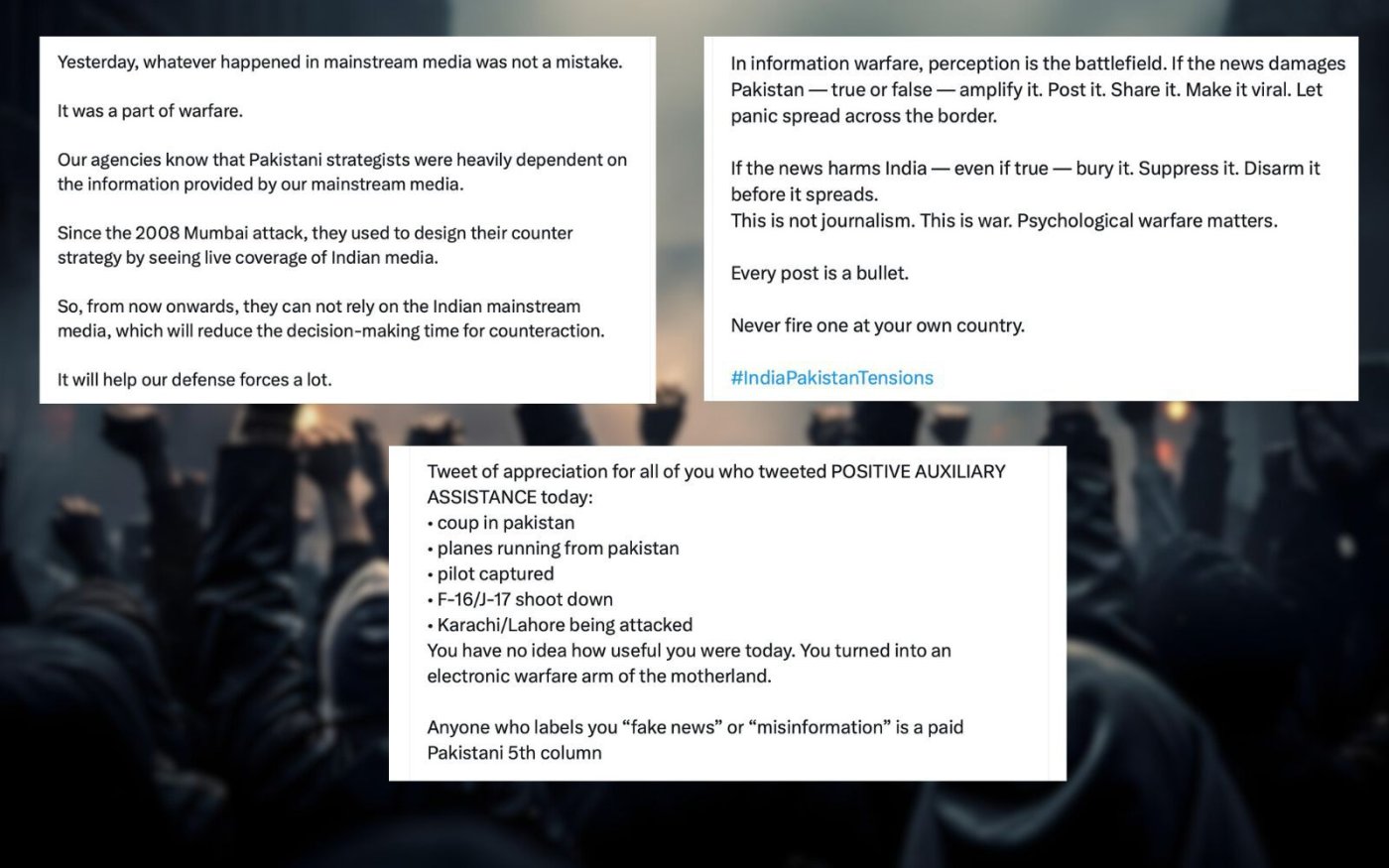
By Betwa Sharma
Delhi: On 9 May 2025, an X (formerly Twitter) account with over 400,000 followers said that in “information warfare, perception is the battlefield” and news that “damages Pakistan” should be amplified even if it is false. Conversely, news that hurts India should be buried even if true.
“This is not journalism. This is war. Psychological warfare matters,” said the post. “Every post is a bullet.”
Another account with close to 300,000 followers listed a series of untruths like “a coup in Pakistan” and “Karachi/Lahore” being attacked by the Indian army, calling it “positive auxiliary assistance” and those who had shared them were the “electronic warfare arm of the motherland”.
“Anyone who labels you ‘fake news’ or ‘misinformation’ is a paid Pakistani 5th column,” said the post.
These posts referred to the military clash between India and Pakistan, which began on 7 May when India targeted terrorist locations within Pakistan, two weeks after terrorists killed 26 tourists in Kashmir.
Since the Bharatiya Janata Party (BJP) came to power in 2014, false and misleading information has become an important tool for right-wing groups in India to promote their agenda of religious division and aggressive nationalism.
Over these four days of conflict, non-state actors—television news channels and social media users—used fake news, doctored images, AI-generated content, and fake accounts to amplify a pro-war narrative.
Some called it “information warfare,” apparently an essential element in defeating Pakistan.
While the use of false information and manipulated images has become a common tactic during elections and for driving the right-wing Hindu agenda, we asked Pratik Sinha, a co-founder of the fact-checking group Alt News, if this was the first instance of individuals promoting misinformation while proudly claiming it as a positive trait.
This story was originally published in article-14.com. Read the full story here.


